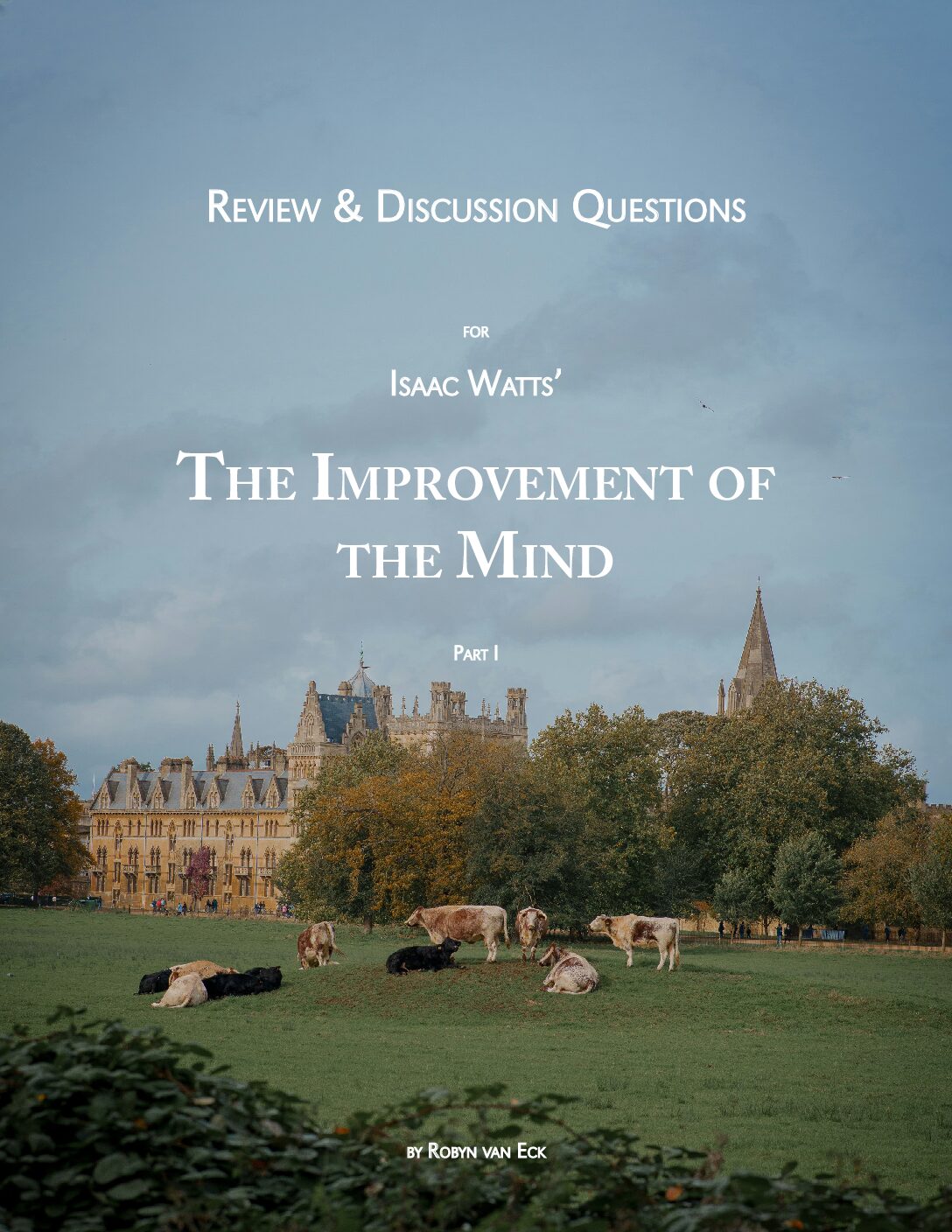Photo by Andrzej Pokrzywiec on Unsplash
Discontentment.
In our family, we stick to societal norms from around, oh, I don’t know, maybe 100 years ago? We homeschool (normal 200 years ago). We teach our children to say yes, sir and no, sir (normal 60 years ago). We don’t go in for organized sports (normal 100 years ago). We make our children use pencil and paper, and use physical books to teach them, and even make them write letters to loved ones (normal 30 years ago!).
So it should come as no surprise that the older children in our home are not called teenagers. Oh, no—we categorically deny the modern idea of Adolescence and what we see as an unrighteous unwritten commandment to youths that Thou shalt act like children, even though you’re perfectly capable of taking on the duties and responsibilities of adulthood—all of which is very neatly summed up in the label, teenager.
Yet…
Even though we call our youths by the title young adult, and teach them very differently from the world that surrounds them, the temptations common to their age still affect them. The good news is that we haven’t had trouble with ours wanting to spend hours every day playing video games or scrolling TikTok. (Hooray!) But the real issues of the heart are every bit as difficult to wrestle with, whether they’re posting on Instagram or just letting them fester quietly, with an outward veneer of wholesomeness.
And one of the biggest monsters young adults have to deal with, in their own hearts, is discontentment.
But it affects more than just young adults.
Sometimes I am driven fairly mad to see young people who have been given so many blessings looking with envy and discontentment at others. We talk it through; my young people wrestle in prayer and in the scriptures, and realize, with joy, how blessed they are. And then a day later, or a week later, discontentment has sown its ugly seeds again, and we’ve got to wrestle through the slough of dispond all over again.
But as this has become a recurring theme in our home, I’ve realized that my young ones are not particularly selfish, short-sided, or foolish, but that this is exactly how (I suppose) all young people tend to feel. Sinfulness is ugly, and we’ve all got a really big problem with it.
I remember when I was a teen, I longed for… everything I didn’t have! The popularity of other girls; the cool clothes the other girls had; a great boyfriend (I went to public school, guys); a cool car; a cool job; to live in a better neighborhood; to be thinner; for my hair to look more beautiful… The list is endless.
I had been hoping my young adults would not think as foolishly as I had in my youth, but as my precious ones got older and this became a common issue, I began to suspect that this was a temptation common to all young adults.
However, we talked this over at dinner recently, and my husband drew a larger conclusion, and explained that discontentment is a major temptation in every stage of life.
When we are 2, we just can’t wait to be 3. As soon as we turn 3, we long to be 4. And 10, and 12, and 15, and 16, and 18…
We look at other families, and wish our own was as well-mannered and good-looking, or our houses as clean and beautiful, or our cars as good, or that we could take such nice vacations. We have an entire expression for it: The grass is always greener on the other side of the fence.
No matter what stage of life we are in, we look longingly at something—anything—else.
So instead of this being a young adult issue, we realized that this is a whole-family issue, and began to implement the old, simple solution that has been used so often in the past.
Count Your Blessings.
I made the children start taking time to thank the Lord for three (different!) things every day.
Maybe you remember White Christmas, and Irving Berlin’s “Count Your Blessings (Instead of Sheep)”. Or the old hymn, “Count Your Blessings”. Our modern culture may label these songs as pollyanna-ish, but they are deeply biblical.
I read in Psalm 71 yesterday, My mouth shall daily rehearse thy righteousness, and thy salvation: for I know not the number. Every day I will count the wonderful things about Who God is and what He has done for me, because there are just so many things, every day, that no matter how many I thank Him for, there are always more mercies I should be thanking Him for! [The Lord’s mercies] are renewed every morning (Lam. 3:23). Psalm after psalm expresses the same sentiment; every day there are new things to thank God for—therefore, I will thank Him!
Those old songs spake true.
The Command.
And this matters becuause we are commanded to be content, not discontented.
Let your conversation be without covetousness, and be content with those things that ye have, for he hath said, I will not fail thee, neither forsake thee… (Heb. 13:5-6)
Ultimately, when we are discontented, it is a gross lack of faith. In discontentment, we are essentially telling God, “You are doing this wrong; let me tell You how You ought to be ordering my life.” It is a lack of faith in the (1) ability, (2) wisdom, and/or (3) lovingkindess of God toward us.
Redirecting.
But it can be so difficult to stop those nagging thoughts.
I believe this is the reason why the scriptures exhort us so again and again to rehearse the goodness of the Lord! We are redirecting our thoughts, in a word.
We are taking unworthy, faithless thoughts captive, and making them obey Christ instead!
So let us—not just this Thanksgiving but all of the time—count our blessings daily, and teach ourselves to speak out the wonderful things God has done for us. It may not give us a happy feeling every single time, but it is obedient, and it is right.
And in the long run, we will cultivate a spirit of contentment, as we train our thoughts in gratitude; and that will lead to happiness.
Is there a hymn or song that helps you to be more grateful toward the Lord? Please share it in the comments!
Thanks for dropping by; please keep us in prayer!
Recommended Resources
-

Grammar of Grace
Price range: $89.00 through $148.00 Select options This product has multiple variants. The options may be chosen on the product page -

Koine for Kids: A Pre-Primer for Biblical Greek
$18.00 Add to cart -

Review & Discussion Questions for Isaac Watts’ Improvement of the Mind
Price range: $24.00 through $32.00 Select options This product has multiple variants. The options may be chosen on the product page



Lynda Oakes
One of my favorite hymns is the old standard “Trust & Obey!” SO true that there is NO OTHER WAY to be happy in Jesus! And II Cor 10:14-15 reminds me HOW to keep my mind focused on thankfulness:
“for the weapons of our warfare are not of the flesh, but
divinely powerful for the destruction of fortresses. We are destroying speculations and every lofty thing raised up against the knowledge of God, and we are taking EVERY THOUGHT CAPTIVE to the obedience of Christ Jesus!”
Elijah Harper
Some old songs I really appreciate are "Every Hour I Need Thee", "Your Grace is enough", "At the Cross" …. A lot of songs actually. All depends on what is hitting home in certain moments.
I appreciate this article and Lord bless you and your family!